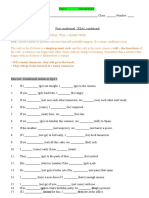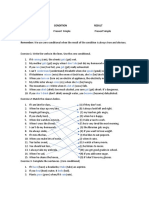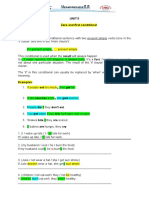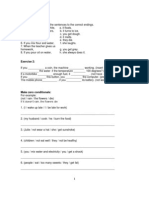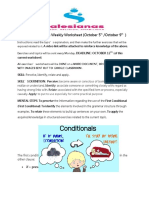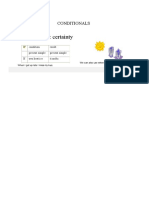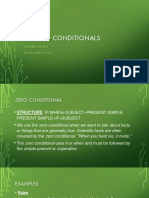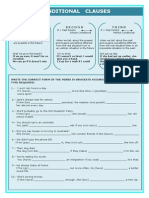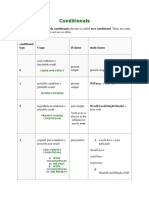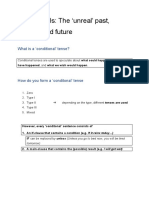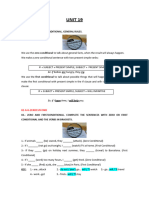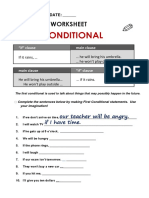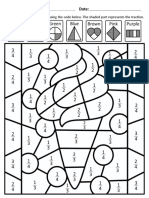0% found this document useful (0 votes)
91 views7 pagesDL Educational Resurces: If Condition
The document discusses zero and first conditionals. It provides examples of zero conditionals which describe scientific facts using the present simple tense (e.g. "if you heat ice, it melts"). First conditionals discuss possible future events, using the present simple for the "if" clause and "will" for the result (e.g. "if it rains, I will stay home"). Exercises provide practice identifying correct and incorrect conditional sentences and matching conditional clauses.
Uploaded by
Luigi Franco Mula (WigiFranco)Copyright
© © All Rights Reserved
We take content rights seriously. If you suspect this is your content, claim it here.
Available Formats
Download as PDF, TXT or read online on Scribd
0% found this document useful (0 votes)
91 views7 pagesDL Educational Resurces: If Condition
The document discusses zero and first conditionals. It provides examples of zero conditionals which describe scientific facts using the present simple tense (e.g. "if you heat ice, it melts"). First conditionals discuss possible future events, using the present simple for the "if" clause and "will" for the result (e.g. "if it rains, I will stay home"). Exercises provide practice identifying correct and incorrect conditional sentences and matching conditional clauses.
Uploaded by
Luigi Franco Mula (WigiFranco)Copyright
© © All Rights Reserved
We take content rights seriously. If you suspect this is your content, claim it here.
Available Formats
Download as PDF, TXT or read online on Scribd
/ 7


